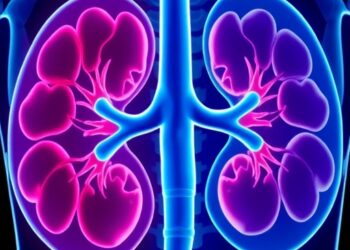PLYMOUTH MEETING, PA [June 26, 2024] — The National Comprehensive Cancer Network® (NCCN®)—a nonprofit alliance of leading cancer centers—is publishing new results for its latest survey on cancer drug shortages in the United States. This follows data published one year ago, and six months ago, illustrating how up to 93% of centers surveyed were experiencing shortages of the crucial chemotherapy carboplatin at its peak. In June 2023, 70% of centers surveyed were also lacking adequate supply for cisplatin. In the latest survey, only 11% of surveyed centers reported a shortage of carboplatin and 7% for cisplatin; but new concerns have emerged.
PLYMOUTH MEETING, PA [June 26, 2024] — The National Comprehensive Cancer Network® (NCCN®)—a nonprofit alliance of leading cancer centers—is publishing new results for its latest survey on cancer drug shortages in the United States. This follows data published one year ago, and six months ago, illustrating how up to 93% of centers surveyed were experiencing shortages of the crucial chemotherapy carboplatin at its peak. In June 2023, 70% of centers surveyed were also lacking adequate supply for cisplatin. In the latest survey, only 11% of surveyed centers reported a shortage of carboplatin and 7% for cisplatin; but new concerns have emerged.
“Critical drug shortages were not a new problem last year and they continue to be a problem now,” explained Crystal S. Denlinger, MD, Chief Executive Officer, NCCN. “The dual carboplatin and cisplatin shortage was particularly severe, and we were able to help sound the alarm during its peak. Despite a renewed attention to drug shortages over the past year, 89% of the responding centers in the latest survey are still reporting shortages of various important anti-cancer agents and supportive care medications. Most of them are still managing shortages for more than one type of medication right now. These shortages not only put a burden on patients, caregivers, and providers, but they could also delay vital clinical trials and slow the pace of progress for new cancer therapies.”
According to the latest survey results—fielded May 28 through June 11, 2024—of the 28 responding centers, 57% reported a shortage of vinblastine, 46% for etoposide, and 43% for topotecan. Some level of shortage was found for many other chemotherapies and supportive care medications, including dacarbazine, 5-fluorouracil, methotrexate, and others. Many of these drugs form the backbones of effective multi-agent regimens across both curative and palliative treatment settings.
The ongoing drug shortages were also found to affect clinical trials at 43% of centers by impacting budgeting, enrollment, and raising administrative burden. 27% reported treatment delays due to shortage-related changes that required additional prior authorization. The responding centers continue to mitigate the impact of shortages through a combination of strategies, including waste reduction management plus adjusted timing and dosage within evidence-based ranges.
“The current situation underscores the need for sustainable, long-term solutions that ensure a stable supply of high-quality cancer medications,” said Alyssa Schatz, MSW, Senior Director of Policy & Advocacy, NCCN. “The federal government has a key role to play in addressing this issue. Establishing economic incentives, such as tax breaks or manufacturing grants for generic drugmakers, will help support a robust and resilient supply chain—ultimately safeguarding care for people with cancer across the country.”
Respondents noted concerns about how the current marketplace incentivizes unsustainable practices, with 75% stating they would like to see economic incentives put in place to encourage the high-quality manufacturing of medications, especially generic versions that are often in short supply. 64% felt there was a need for a broader buffer stock payment. The same percentage would like to see more information made available on user experience for various suppliers.
The NCCN Policy and Advocacy team has been involved with national efforts, working with federal regulators, agencies, and lawmakers to implement long-term solutions to drug shortages. Learn more and view past and present survey results by visiting NCCN.org/drug-shortages.
# # #
About the National Comprehensive Cancer Network
The National Comprehensive Cancer Network® (NCCN®) is a not-for-profit alliance of leading cancer centers devoted to patient care, research, and education. NCCN is dedicated to improving and facilitating quality, effective, equitable, and accessible cancer care so all patients can live better lives. The NCCN Clinical Practice Guidelines in Oncology (NCCN Guidelines®) provide transparent, evidence-based, expert consensus recommendations for cancer treatment, prevention, and supportive services; they are the recognized standard for clinical direction and policy in cancer management and the most thorough and frequently-updated clinical practice guidelines available in any area of medicine. The NCCN Guidelines for Patients® provide expert cancer treatment information to inform and empower patients and caregivers, through support from the NCCN Foundation®. NCCN also advances continuing education, global initiatives, policy, and research collaboration and publication in oncology. Visit NCCN.org for more information.




